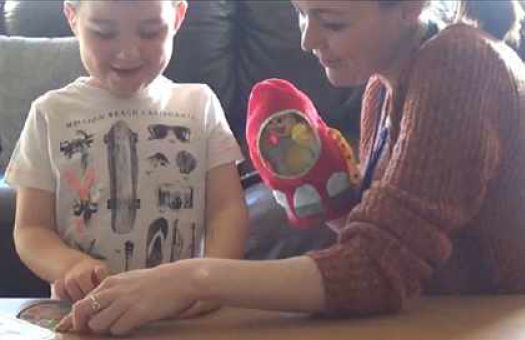

Play specialists publish resources to take the fear out of taking a COVID swab
Free resources that help parents make COVID-19 sample-taking a little less frightening for children by turning it into a playful experience have been published by University of Cambridge researchers.
The video and supporting leaflet have been published because more and more parents are having to complete COVID-19 tests with their children, particularly as the virus unfortunately appears to be spreading more rapidly.
They draw on a simple technique that researchers from the Centre for Play in Education, Development and Learning (PEDAL) at the Faculty developed during previous research in which they had to take mouth swabs from children. The technique could be helpful for COVID-19 testing – something which younger children in particular often find not just unpleasant, but scary.
The researchers’ solution was to turn it into a game: The children are asked to imagine two astronauts who are trying to reach Mars but have run out of ‘rocket fuel’ which, as luck would have it, can be found in the mouths of children. Swabs become ‘magic sticks’ that need to be added to a ‘fuel tank’ to help the intrepid adventurers reach their destination. The approach proved very successful in helping to settle children’s nerves during the original research.

Aside from providing the general set-up, the resources also offer some additional, general tips on how to make the experience of having a swab less distressing, how to keep the play going throughout, and how it can be adapted to suit different ages, levels of understanding, and interests.
Beth Barker, a Research Assistant at the PEDAL Centre, who helped to create the tools, said: “We found that using play, something children are already really comfortable and familiar with, helped put them at ease enough to give something unfamiliar a try. Playful approaches to carrying out testing won’t work for all children, but they do seem to work for many so are worth giving a go.”
The free resources, developed by Beth Barker, Dr Christine O’Farrelly and Professor Paul Ramchandani, can be downloaded along with many others for anyone interested in finding out more about the different uses of play from the Centre’s online Hub.